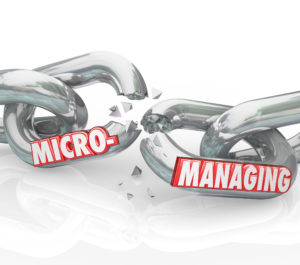Podcast: Play in new window | Download
Subscribe: RSS
“Alone we can do so little; together we can do so much”
― Helen Keller
The saying “If you can’t beat them join them.” holds true when it comes to creating the collaborative advantage. The collaborative advantage is the ability to form beneficial and rewarding relationships with other businesses and organizations. When forming a collaboration, it is important to create a relationship that has mutual benefits in which both feel like they’ve achieved a win-win toward meeting their goals. It’s not a trade-off that if I do this for you that you will do this for me that’s not true collaboration. Many partnerships are screened for their financial contribution, however in their missing the key piece in a successful collaboration-the people.
Commitment can be high in collaboration when the value is available to both parties in a joint venture or partnership that are not in direct competition but actually complement each other. There can be barriers preventing collaboration. The barriers may occur with shared values and goals as well as behaviours. Having shared values is a good thing, there are times when collaborators try to please each other and they’re afraid to call things out when something goes wrong. Behaviours that can impact the collaboration are not seeking help or asking for help when needed, having the belief that you need to solve it all yourself, and also you may face people who were unwilling to help.

Even though we’re looking for cooperation, collaboration should not be confused with teamwork. Teamwork is when you work together to meet a common goal or vision whereas collaboration is when you work together to meet your individual or organizational goals. For example, you may see a car manufacturing company collaborate with the sound system company to ensure high-quality sound systems in their vehicles. They are working together for the interests of their own organizations. In working together you are gaining new perspectives and have the ability to brainstorm creative and innovative solutions.
“As a collaborative leader, you support people in their work—you remove roadblocks and help them win.”
― Kenneth H. Blanchard
There may be times when you need to know when not collaborate with others. There is a cost to collaborating that sometimes people don’t consider resources, money, and time. Learn and forecasts your return on investment.
 There are times when the collaborative advantage is more valuable than a competitive advantage. You get to expand your network and available resources. Creating the collaborative advantage requires strategic intent. It’s important to listen and understand align with the needs of each business and organization. There has to be a commitment to the partnership.
There are times when the collaborative advantage is more valuable than a competitive advantage. You get to expand your network and available resources. Creating the collaborative advantage requires strategic intent. It’s important to listen and understand align with the needs of each business and organization. There has to be a commitment to the partnership.
This partnership or collaboration creates accountability and you have an opportunity to learn from each other. This is paramount. It is important to have agreements in writing as to what each partner is willing to do and not do. There needs to trust that each partner is working for the best interest of working together even though they are working for their own business and organizational gain. Boundaries need to be in place. You may even consider having an exit strategy where partners have permission to withdraw from the partnership.
Business and organizational relationships are no different than personal relationships. People need to know like and trust a business or organization before they plan to do any business with it. Conflicts and misunderstandings may occur. It is important to recognize that each party may have their own opinions and it is okay to respectfully disagree. You will just need to work together in figuring out a solution.
“When people feel trusted, they’ll begin to understand they are contributors–and you’ll get great ideas and happy people.”
― Eunice Parisi-Carew
It’s important to note that when you take the time to get to know the people of the organization that you will be able to have more influence than if you would just looking at the financial advantage. As you get to know the strengths and talents of each partner, you will be able to recognize ways to leverage it to your advantage. When someone finds you relatable based on having a family or pets or a similar hobby, they may be more apt to choose you over a competitor because you show up as a person first. A collaboration that brings out the best in each partner ends up creating a competitive advantage.
Questions to Ask Yourself When Creating a Collaborative Advantage:
- How will this get me closer to my goals or my organization’s goals?
- What is my level of commitment to creating this collaborative advantage?
- What would I like to learn from this partnership?
- How will we hold each other accountable?
- In what ways, can we encourage co-operation within our teams?
- What are the boundaries that need to be in place?
- How can this collaboration bring out the best in us?
- What are the needs of my partner and how can I understand how I can help them fulfil those needs?
Who would you like to create a collaborative advantage with? Accelerate your results by collaborating with others.
We would love to have you subscribed to the Success Secrets newsletter on my website at www.debrakasowski.com where you’re going to get us free MP3 download 10 Surefire Strategies to Power Up Your Productivity and Performance. I would love to hear about this podcast has impacted your life. E-mail me at Debra@DebraKasowski.com. Thank you for listening to The Millionaire Woman Show where we talk about leadership, business, and human potential to help you live rich from the inside out. Subscribe to The Millionaire Woman Show. Share it with Your Friends. Give us a 5-star rating!
DEBRA KASOWSKI, BScN CEC is an award-winning best-selling author, transformational speaker, blogger, and Certified Executive Coach. She has a heart of a teacher and is certified in Appreciative Inquiry and Emotional Intelligence. Her writing has been published in a variety of print and online magazines. Debra Kasowski International helps executives, entrepreneurs, and organizations boost their productivity, performance, and profits. It all starts with people and passion. Sign up the Success Secrets Newsletter and get your free mp3 download today! www.debrakasowski.com
Time: 09:03 min
Keywords: collaboration, collaboration advantage, cooperation, working together, collaborating with clients, sustainability, competitive advantage, accountability, creating a collaborative advantage
 Commitment is about taking action and getting results.
Commitment is about taking action and getting results.

 Micromanagement and accountability are often misunderstood. Micromanagement is when the manager closely observes or takes control of the work of the people that report to them. They monitor and assess every step of the way. A micro-manager does not ask for input and may hide information to have the upper hand. These individuals do not trust that their people can do the job they were hired for.
Micromanagement and accountability are often misunderstood. Micromanagement is when the manager closely observes or takes control of the work of the people that report to them. They monitor and assess every step of the way. A micro-manager does not ask for input and may hide information to have the upper hand. These individuals do not trust that their people can do the job they were hired for.
